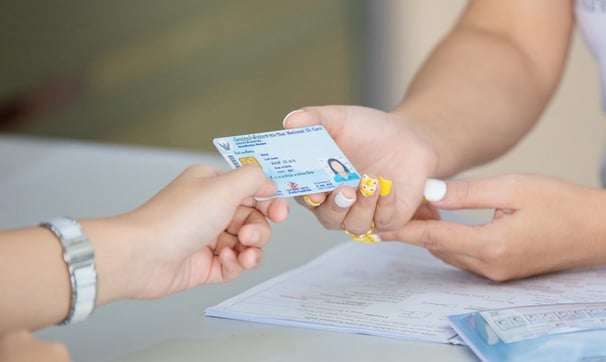The Strategic Advantages of Delegating Civil Identification Matters to Consular Offices for Immigrants in the U.S.
ACTIVISM


In an increasingly globalized society, the need for streamlined, culturally competent, and effective public service delivery is more urgent than ever—especially when it comes to serving immigrant and international populations. Among the numerous responsibilities governments undertake, managing civil identification—such as driver’s licenses, passports, and citizenship documentation—is one of the most critical, complex, and sensitive.
The idea of delegating some of these responsibilities to consular offices of foreign nationals based in the United States presents a compelling opportunity. This approach, though unconventional, offers several strategic advantages for both the U.S. government and the immigrant communities it seeks to serve.
1. Enhanced Accessibility and Cultural Competence
Consular offices serve as trusted institutions for immigrants and international residents, often acting as a cultural and linguistic bridge between their citizens and host nations. Delegating identification services to these offices can dramatically reduce language and cultural barriers that often lead to misunderstandings, incomplete applications, or avoidance of essential government services.
Immigrants frequently face difficulty navigating bureaucratic procedures in a foreign language or within systems unfamiliar to them. Consulates, however, are uniquely equipped with staff who understand not only the language but also the specific socio-cultural context of their nationals. By empowering consular offices to process or at least facilitate applications for civil documents such as ID cards, driver’s licenses, or residency verifications, the U.S. government could ensure greater accuracy and compliance.
2. Operational Efficiency and Reduced Government Burden
Government agencies such as the Department of Motor Vehicles (DMV) and U.S. Citizenship and Immigration Services (USCIS) are often overwhelmed with high demand, resulting in long processing times and resource strain. Sharing responsibilities with consular offices would help distribute this administrative burden.
Consulates could pre-screen applications, verify documentation, and submit complete, vetted packages to federal or state authorities. This partnership could expedite processing timelines and reduce the likelihood of fraudulent or incomplete submissions, thereby improving workflow efficiency.
3. Strengthened International Cooperation
This delegation would also foster greater collaboration between the U.S. and foreign governments. Such cooperation could open the door to data sharing (in accordance with privacy laws), improved vetting processes, and enhanced security protocols. For example, if a consulate can verify a birth certificate or national ID issued in its home country, it adds an extra layer of authentication to U.S. government procedures.
Moreover, strengthening consular involvement in civil processes supports international diplomacy by showing mutual respect and trust. It recognizes consular offices not only as diplomatic outposts but as vital community service providers in a globalized world.
4. Improved Trust and Participation Among Immigrant Communities
Many immigrants are hesitant to engage with U.S. government institutions out of fear—often rooted in past experiences or concerns about immigration enforcement. By allowing consular offices to play a greater role in civil matters, immigrants might feel more comfortable participating in essential civic processes like driver licensing, legal identification, or even pathways to citizenship.
This increased trust can also result in better community safety and integration. For example, more immigrants might obtain proper driver’s licenses, increasing road safety and insurance coverage, or update address information more reliably, aiding in emergency preparedness and response.
5. Potential for Technological Integration and Innovation
Modern consular offices already use digital systems to manage identification services for their nationals abroad. Integrating these systems with U.S. civil infrastructure (while maintaining data privacy standards) could facilitate a secure, digitized ecosystem for civil identification.
Blockchain verification, biometric validation, and secure cross-border data exchange are just a few technologies that can be harnessed to make such collaborations not only feasible but highly efficient. This could set a new international standard for handling identification in an era of unprecedented mobility.
Challenges and Considerations
While the benefits are clear, implementing such a delegation system requires addressing several challenges:
Legal Frameworks: Federal and state laws would need to accommodate such partnerships, ensuring due process, privacy, and jurisdictional clarity.
Standardization: Different consulates operate with varying levels of capacity and standards, which could lead to inconsistency unless there’s a unified protocol.
Oversight and Accountability: Rigorous oversight mechanisms must be in place to prevent fraud or misuse of delegated authority.
Conclusion
Delegating civil identification responsibilities to consular offices is not about outsourcing national functions—it’s about strategically leveraging existing, trusted institutions to improve service delivery, community integration, and administrative efficiency. In doing so, the U.S. could not only relieve pressure on its own agencies but also foster stronger ties with immigrant communities and international partners alike.
By reimagining how civil services are delivered, the U.S. can take a bold step toward a more inclusive, efficient, and globally attuned governance model—one that reflects the complex identities and realities of the 21st-century population.
